Annual Mates David & Hinna Stahl Memorial Lecture in Bioethics
Message from the Chairs
Welcome to the Mates David and Hinna Stahl Memorial Lecture website!
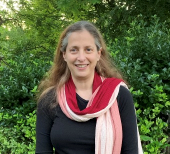
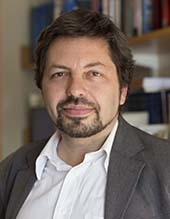
The Stahl Memorial Lecture series began in 1998 with a donation by Theodore Stahl, MD, and Eva Stahl, MD, one year earlier, to Robert Wood Johnson Medical School. Both life-long physicians; Ted a radiologist and Eva a dermatologist, the bioethics inherent in medicine was always a topic of great interest to them and the funds were to be used to invite top bioethicists to the medical school to speak on topics of interest to the community, faculty, students and staff alike.
Since their generous gift, the lecture series has attracted a host of national thought leaders and experts who have addressed topics such as ethical issues in the patient-physician relationship, medical and scientific progress, comparative and cost effective healthcare, patient safety and quality improvement, genetic enhancement, organ donation, end-of-life care, social justice in health and healthcare, healthcare rationing and journalistic integrity in medicine and public health, and healthcare reform to name just a few. The endowed lectureship will continue each spring as a new speaker is selected.
The lectureship was created in memory of Dr. Ted Stahl’s parents, Mates David and Hinna Stahl who lived through two major wars, the Holocaust and the Depression. Throughout their lifetime, they became renowned for their commitment to ethical values and appreciation of history and culture.
James Stahl, MD, and Lauren Stahl, are the next generation of the Stahl family to join their parents and grandparents in their commitment to ethical values. The goal of this section of the website is integrate all of the work done by the Stahl family into an informative easy-to-use resource for the study of bioethics.
It is through invigorating thought, robust conversation and scholarly debate that new ideas are born leading to ethically informed and responsible research, education, clinical care, and community service.
Family Legacy
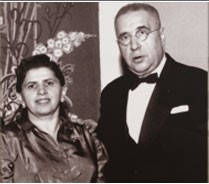
Like many of their generation, my parents, Hinna and David Stahl, experienced an incredible odyssey living through the extraordinary changes and dislocations that marked the 20th century. They lived through two major wars, the Great Depression of the twenties and thirties, the violent upheavals of the German Weimar Republic and felt the impact of that indescribably terrible period we call the Holocaust losing many family members.
My father was a graduate of both the yeshiva and classical gymnasium. My mother graduated from a lyceum for girls. World War I disrupted their lives and their hopes of continuing their education. My father became a prisoner of war and my mother with her family suffered the privations of the war in Germany. After my father returned, they were married and established a successful business in Spandau, a suburb of Berlin. They left Germany for America with me, their young son, in 1935-36 because of their experience with an increasingly virulent anti-Semitism that included confrontations with Nazi storm troopers. On one occasion, my mother was severely beaten by Brown Shirts. In America, they began their lives anew in a country still in Depression.
My parents were contrasts. My mother was warm and lively, always engaged with people. My father was dignified, calm and a scholar throughout his life. They transmitted to me, with my family, their ethical values and profound sense of history and culture both Jewish and secular. Those who met them always remembered them. Friends who grew up with me continued to visit and learn from them over the years. This lectureship was established in my parent’s name because my memory of them is inseparable from their commitment to ethical values.
--Dr. Theodore Stahl
Current Lecture
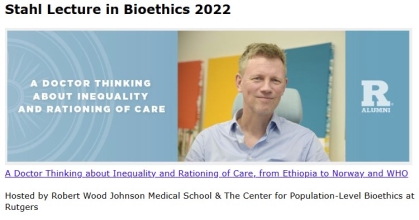
In medicine, “rationing of care” means that some patients will not be offered, or will be denied, care that could potentially benefit them. In this virtual lecture, Dr. Ole Norheim discusses the histories of patients who have experienced rationing of care in low- and high-income countries: patients with childhood cancer in Ethiopia and spinal muscular atrophy in Norway.
Dr. Norheim has worked both as a medical doctor and ethicist in Norway and Ethiopia and in this lecture, he reflects on his experiences of resource scarcity and inequality and the consequences for patients and the health care system. He will argue that systematic priority setting based on shared ethical values can reduce the amount of unfair rationing. Such ethical values could include health maximization, priority to the worse off, and social protection.
Dr. Ole F. Norheim is professor and director of the Bergen Centre for Ethics and Priority Setting, University of Bergen, Norway, and an adjunct professor of global health at the Department of Global Health and Population, Harvard TH Chan School of Public Health. He is also head of the Norwegian Biotechnology Advisory Board, former chair of the World Health Organization’s (WHO) Technical Advisory Group on Health Benefit Packages, and series editor of the World Bank’s Disease Control Priorities project. Dr. Norheim also chaired the WHO’s Consultative Group on Equity and Universal Health Coverage and the third Norwegian National Committee on Priority Setting in Health Care.
Previous Lectures

2020Dementia Reimagined
|
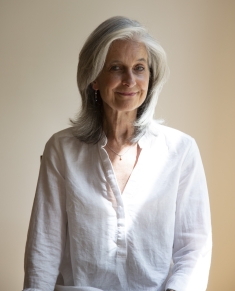
|
Tia Powell, MD |
2019The Emergence of Population-Level Bioethics
|
|

|
Nir Eyal, D. Phil |
2018Caring for Patients with Life-Threatening Illness: Past, Present, and Future
|
|

|
Joseph Fennelly, MD |

Stahl Lecture Committee
Nir Eyal, D. Phil, Co-chair
Dalya Chefitz, MD, Co-chair
Gil Blitz George Brennan, MD
Amar Bukhari, MD
David Carver, MD*
Rev. James DeVries*
Hon. Meryl Frank
Patricia M. Hansen, MA
Rabbi Yakov Hilsenrath
John Kostis, MD
Sanford Lakoff, PhD
Robert C. Like, MD, MS, Former Chair
Alice Lustig
Russell McIntyre, ThD, Former Chair
Arline Schwartzman*
Michael Solomon, MD
Eva Stahl, MD
James Stahl, MD, CM, MPH
Lauren Stahl
Theodore J. Stahl, MD
Ralph Voorhees*
*Members Emeritus/Founding Members
